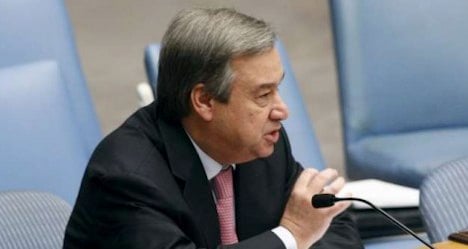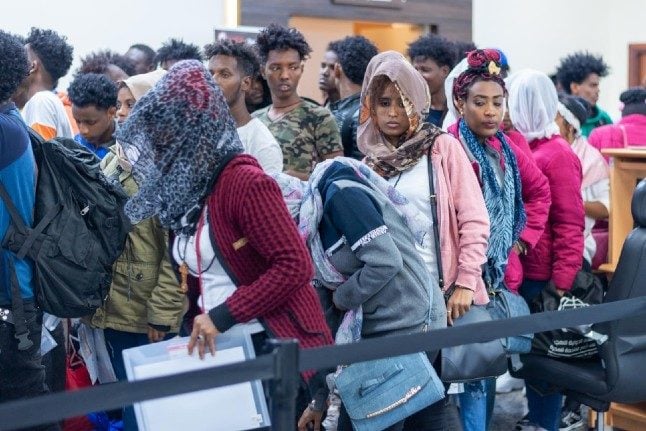"Today, 28 countries expressed their solidarity with the Syrian refugees but also with the five neighbouring countries which are hosting them . . . offering what we estimate will be more than 100,000 opportunities for resettlement and humanitarian admission," Antonio Guterres told reporters after a high-level pledging conference in Geneva.
There was no clear overview over which countries had pledged what, but Guterres stressed the leading role played by Germany and Sweden in the resettlement programme.
Germany, which is hosting some 80,000 Syrian refugees, including 20,000 in the UN resettlement programme, did not immediately pledge additional spots, saying it was waiting for a signal from the European Union and demanding a "Europe-wide campaign" to help distribute the burden more evenly.
Going into the conference, just over 40,000 resettlement places had been pledged by two dozen countries, Guterres said.
After the forum, he voiced confidence that "we have clearly more than doubled the perspectives that we had until now".
While only 66,254 of the pledged spots were "firm and concrete", Guterres pointed out that 11 countries had announced they were creating new resettlement programmes or would be expanding existing programmes.
The UNHCR has called on countries by 2016 to help resettle 130,000 of the more than 3.2 million registered refugees amassed in Syria's neighbours since the conflict erupted in March 2011.
The influx is putting a huge strain on host countries Lebanon, Jordan, Turkey, Iraq and Egypt, and Guterres said he was "very happy" with the solidarity voiced at the conference.
He stressed though that Tuesday's pledges were "not the end of the process.
That is the beginning of a process," and that the UN would continue pushing on towards the 130,000 goal.
But even that would only be a step towards covering the true resettlement need for Syrian refugees, Guterres said, pointing to estimates that at least ten percent, or more than 300,000, of the refugees would be best served through resettlement.
Sweden, which counts the most Syrian refugees compared to population size, with some 60,000 asylum seekers from the war-torn country, said it would double its current 1,500 resettlement spots.
German Interior Minister Emily Haber told AFP that "Europe cannot keep its eyes shut," insisting on the need to offer "adequate housing" to the Syrian refugees.
Guterres also hailed the United States for vowing to "accelerate" its resettlement programme, which is already reviewing 9,000 Syrian cases.
"We are receiving roughly 1,000 new ones each month, and we expect admissions from Syria to surge in 2015 and beyond," Anne Richard, the US Assistant Secretary of State for Population, Refugees and Migration, told the conference.



 Please whitelist us to continue reading.
Please whitelist us to continue reading.
Member comments